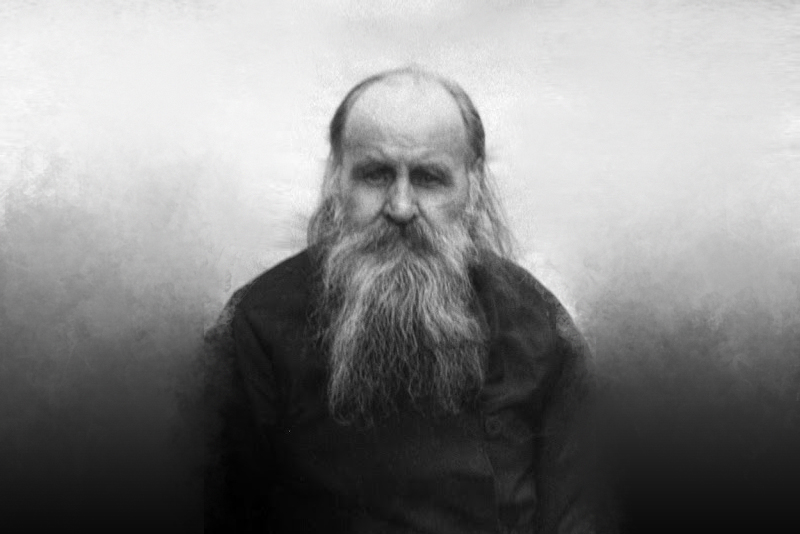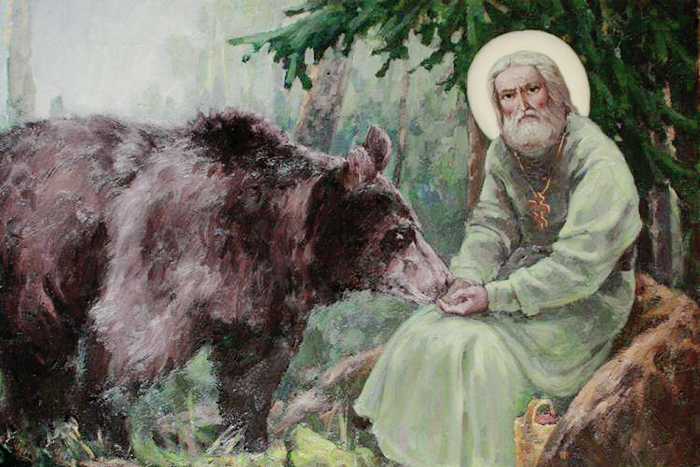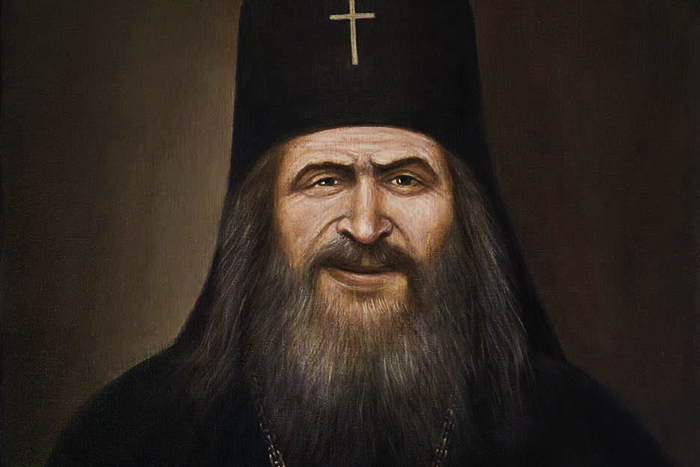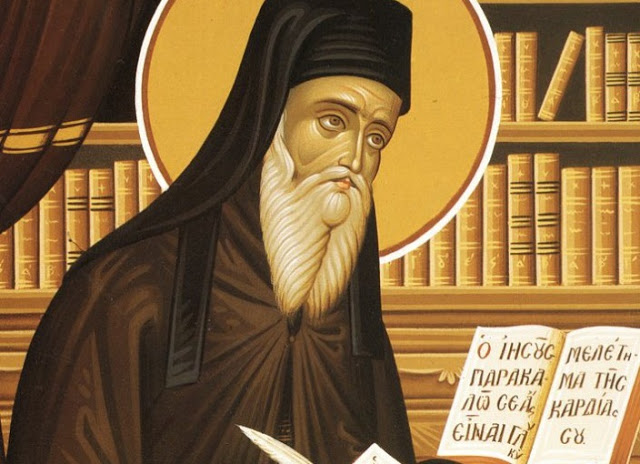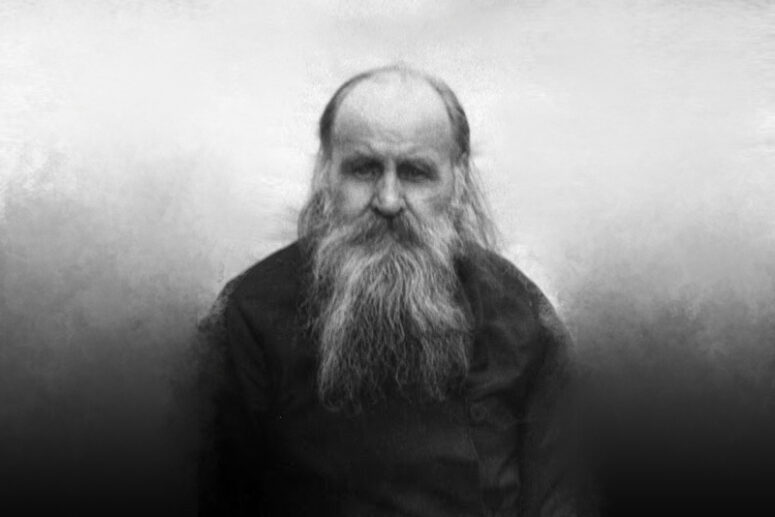
Most Orthodox Christians in our part of the world will know the Venerable Saint Simeon of Verkhoturye. Yet few are familiar with the life of another saint from Verkhoturye, John (Kevroletin), who took upon himself the exploit of a fool-for-Christ. He died in 1961, and his holy relics were discovered 32 years later. The church commemorates this saint on 27 January.
The would-be confessor of the faith was born in 1875 to a family of poor peasants. His parents had no money to pay for school, so he learned to read at home. From his childhood, he dedicated his life to God. In his young years, he joined a small monastery on the river Kyrtomka not far from Alapayevsk. The monastery lived according to a strict rule. The monks ate only once a day. They observed the full rule of worship with no omissions. In 1907 he accepted monasticism with the name Ignatius, and several years later he was ordained a hierodeacon, and eventually a hieromonk. After the revolution of 1917, the monastery was closed, and Father Ignatius was arrested. Yet because they found nothing to accuse him of, they had to let him go.
The new century brought a new order, or more exactly, a disorder into the established lifestyle, social relationships and the economy. Things that seemed immutable for centuries began to unravel. The new order that came in their place seemed too hard to get one’s mind around. It took several decades for the Soviet regime to return to the pre-revolutionary of married life, private ownership and individual rights. But during the initial years of the red terror, the wild Bolshevik experiments on society and the family unit defied all imagination.
So what choices were available to a person whose conscience could not accept the new values propagated by the ruling regime? Saint John had only one – to become insane for the world. As a behaviour, insanity transgressed the boundaries of the law and social custom. Yet it also provided a powerful defence against prosecution. To many, it became their only chance to remain true to themselves, while avoiding the death penalty or a lengthy prison term. Numerous ascetic of this time chose this route and lived to old age without compromising their conscience.
For Father Ignatius, this was not an easy decision. It came after his second arrest in 1932 and exile to Siberia. He became a Fool-for-Christ after returning home and persisted in his exploit throughout the rest of his life. He was seen in women’s clothing, or wearing a medieval astronomer’s skullcap on his side, or dressed in garments turned inside out. His strange and unpredictable behaviour unnerved some, and many a time he would hear threats or suffer beatings from angry attackers.
This was a completely new lifestyle. “What do you expect? He is insane!” – the people were saying. Yet the attire of a clown and strange behaviour masked the saint’s rich spiritual gifts – his exceptional humility, live for others, wisdom and foresight. The elder exhibited the gift of foresight on multiple occasions, which, however, are not the subject of this article.
Today, choosing the life of a fool for Christ seems no less relevant than at the time of Saint John. Yet, the way we accept this feat is somewhat different than before. Today, living by the norms of Christian morality could be enough to earn you the reputation for being insane. The revolution of morals, or the ‘global reboot’, turned the human consciousness upside down. Refusing to accept the changed mores has become the new insanity. We do not need to look too far for examples. One is at risk of being declared insane if he still considers marriage as a union of one man and one woman, or recognises no other sex but male and female, or refuses to separate sex from procreation. Increasingly, it is considered anathema in secular society to assert that there are only one true church and one true faith, and all others teach lies and deception, or to adhere to the teachings of the gospel that salvation is found in no one else, for there is no other name under heaven given to mankind by which we must be saved; or to treat God’s law as the ultimate moral and ethical guidance that prevails over any other value or end.
Examples are numerous. Their list is open and serves as a good indication of where the world is going in moral and ethical terms. That Christians have always been viewed as ‘not of this world’ is not any news. One married couple I had known for many years were labelled insane by their parents for refusing to watch television and taking no interest in the news and current affairs, for living in silence, prayer and fasting and for cultivating the Christian values in their daughter.
These days, one has to be insane if one does not have a smartphone or use any gadgets. Tomorrow, one might be declared insane and an enemy of the people for refusing to vaccinate. In the more distant future, the insane will be all those who still recognise Jesus Christ as God and Saviour, and not a democratically elected king or ruler of the whole humanity, especially after the world’s religious leaders have submitted to his authority and rule. In this new world order, retaining the image of God and living by God’s principles will constitute madness.
In the years of Stalin’s rule, people wrote millions of reports on their friends and neighbours. Today, there will be millions of haters waiting to attack one fair-minded individual on social media. There will likely be a lot more of them in the times of the Anti-Christ. Yet a Christian there does not need to worry what other people will say or think of him. To him, the only thing that matters is how he will appear in the eyes of God.
Elder Ignatius lived his life according to these principles. As grandiose constriction projects were being pursued, as everyone was looking forward to a bright future; when young enthusiasts were writing letters to the future generations congratulating them on their successful flights to Mars and other galaxies, elder Ignatius was warning his spiritual children of the inevitable collapse of the Communist tower of Babylon, and the only people who will survive in its rumble will be those who continue to seek God’s kingdom and God’s truth. Eventually, the saint reached his old age.
He was in poor health and was tonsured as a schema monk with the name John. Her spiritual daughter recalled:
“I am sitting in a corner crying and praying to the Mother of God so she takes him with her.
He smiles at me and says: ‘Look, she is praying for my death.'”
The elder had a good sense of humour. A group of female visitors once came to see him and said:
“It must be hard for you to lie on your bed all the time”.
He replied:
“But if I get out of bed, they will send me to cut the firewood”.
Shortly before his departure, they asked him when to begin to read the canon for the departure of his soul. The elder named the exact day and time. Shortly before his death, the elder read several chants from the canon, handed the book over to his spiritual children, and departed peacefully to God while they were reading.
Translated by The Catalogue of Good Deeds
Source: https://spzh.news/ru/istorija-i-kulytrua/77239-bezumstvo–jedinstvennyj-sposob-sohranity-rassudok

